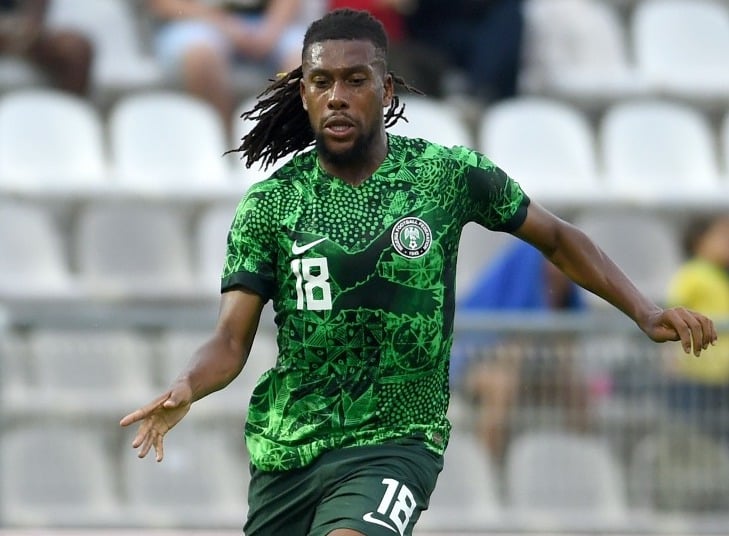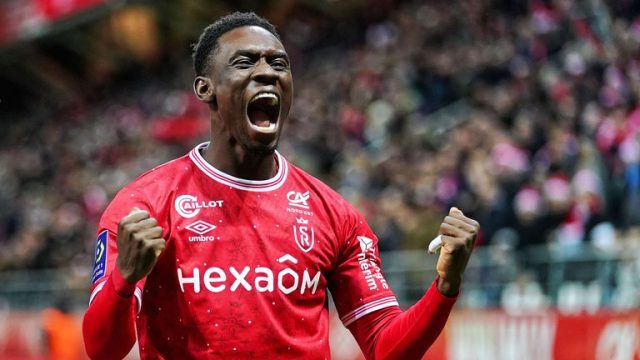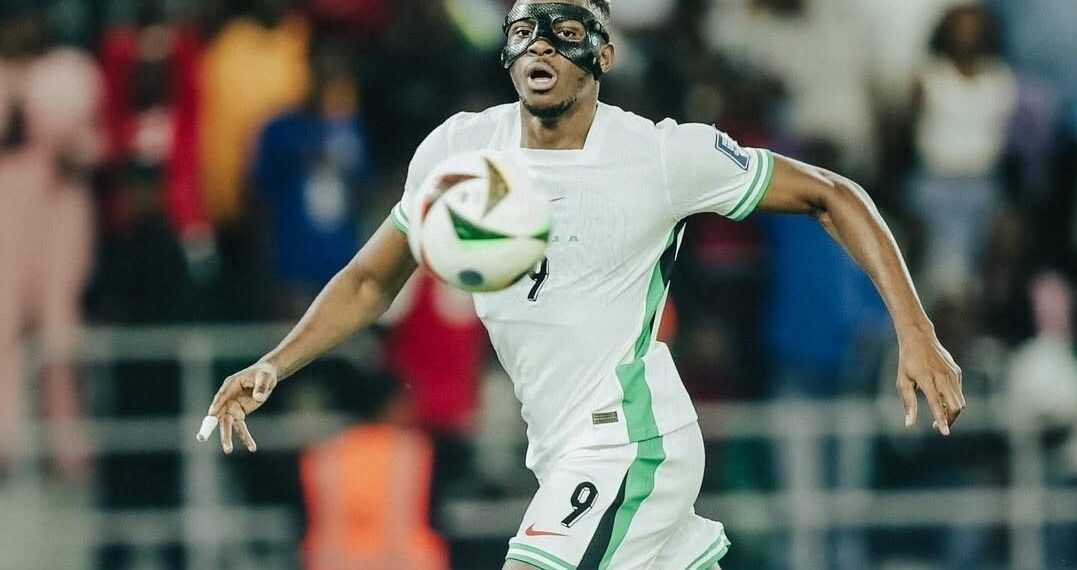Super Eagles and Fulham midfielder Alex Iwobi recently equalled Shola Ameobi’s record for the most English Premier League (EPL) appearances by a Nigerian. He discusses the significance of this milestone and reflects on the journey so far in a recent conversation with SuperSport.
Nigerian football fans are famous for their passionate support—whether cheering from bustling viewing centres in Lagos or following players’ journeys abroad. For many, seeing a homegrown talent like Alex Iwobi thrive at the highest level of European football is more than personal achievement—it’s a testament to the nation’s growing football pedigree. With each appearance in the EPL, Iwobi carries the dreams of young players across Nigeria, West Africa, and an ever-widening global community.
Touching on the record, Iwobi said the achievement still feels somewhat surreal. “It’s amazing, honestly, to almost be the single most capped Nigerian in the EPL. I don’t really think about it, because I just normally go and play games. But afterwards, when I chat with my family, it’s like, ‘Oh wow, I’ve played a lot of games.’ Yeah, it’s an honour to be one of the most capped Nigerian players in the Premier League.”
Football analysts in Nigeria, such as Lagos-based sports columnist Adewale Adebayo, point out that Iwobi’s durability and consistency in the English league set him apart from a generation of Nigerian stars. “It’s not just about talent or skill,” Adebayo explains. “Surviving season after season in the EPL means discipline, adaptability, and a mindset tuned for excellence. Iwobi represents what’s possible when those traits come together.”
Being compared to Shola Ameobi, an established name among Nigeria’s football legends, adds gravity to the feat. “Shola Ameobi is a big legend, and you said I’ve done it in fewer years, so hopefully I’ve got many more years ahead to set the record with greater numbers,” Iwobi remarked. For young players at home, this provides a tangible target—and evidence that consistent hard work can pay off.
As Nigeria gears up for the next World Cup qualifiers, belief in the team’s prospects runs deep. “Of course, we believe that we’re going to go to the World Cup; otherwise, we wouldn’t be here,” Iwobi said with conviction. He called on the fans to keep faith with the Super Eagles, adding, “We’re going to try and do our best, so hopefully the fans can continue to believe in us as well.”
Nigeria has had a proud history of producing world-class footballers, with many plying their trade across top European leagues. Yet, only a handful have truly settled and excelled in the English Premier League—a league renowned for its rigorous demands. According to reports from the Nigerian Football Federation (NFF), achieving such a milestone requires not just talent but also a robust support system, resilience, and the mental will to bounce back from setbacks.
Iwobi also commented on camaraderie among Nigerian players in the EPL, especially as he’s now joined by fellow countryman Samuel. “Yeah, it’s nice to have Samuel join us, not just because he’s Nigerian, but because he’s a great player and a great person, both on and off the pitch. We’re technically Naija FC now,” he quipped. The emergence of strong Nigerian contingents at clubs like Leicester City (with Iheanacho and Ndidi) and Nottingham Forest (where Ola Aina, Taiwo Awoniyi, and Emmanuel Dennis have featured) has fostered a sense of unity and national pride among fans. However, Iwobi insists, “Are we carrying Nigeria in the Premier League? I wouldn’t say so. It’s just nice to have another brother added to our team.”
This growing presence of Nigerian and West African players in the EPL hasn’t gone unnoticed. Ghanaian sports commentator Kwame Mensah told SuperSport, “The Nigerian presence in the Premier League is a huge source of regional pride, and it’s inspiring countless young talents from across West Africa.”
Success, however, brings new expectations. Reflecting on the challenge ahead, Iwobi shared, “You’d want to win, obviously. You’d want to improve on the last one, and the only way to improve is to win it. So let’s see what we can do this year.”
For many Nigerian athletes, the footprints of those who came before are significant motivators. Iwobi’s uncle, Austin ‘Jay-Jay’ Okocha, remains one of Africa’s most celebrated footballers, known for his dazzling skills and memorable moments at Bolton Wanderers and Paris Saint-Germain. “A key moment for me—obviously, I’m blessed to have an uncle who played in the Premier League, Austin ‘Jay-Jay’ Okocha,” Iwobi revealed. He recalled a legendary goal his uncle scored during his time at Bolton under Sam Allardyce: “They had to play against West Ham to stay in the league, and he ran from one end of the pitch to the other and smashed it into the top corner. Watching that was probably one of my biggest moments. I thought, ‘One day I want to be like my uncle—or even better.’ So I’d say that moment inspired me.”
The journey of Nigerian players in the EPL is full of challenges. Issues such as adaptation to a new climate, consistent high-intensity competition, and tactical demands often present additional hurdles. Analysts like Adebayo note that for every player who finds the limelight, there are many who struggle to settle or secure playing time. Iwobi’s ability to navigate these waters is a testament not only to his personal growth but also to the gradual maturation of Nigerian football development systems, from street football to professional academies and national teams.
Recent statistics from the Premier League and football data site Transfermarkt show that Nigerian internationals have now made over 1,500 appearances collectively in England’s top league. Names like Nwankwo Kanu, Yakubu Aiyegbeni, John Obi Mikel, and Joseph Yobo paved the way, but it is current stars like Iwobi, Ndidi, and Iheanacho who continue to raise the standard.
Local fans express immense pride in seeing their compatriots shine abroad. According to Abuja-based fan Chidera Okeke, “When we see someone like Iwobi succeed, it lifts the mood at home. Young players see what’s possible. Parents start to believe that football can bring a future for their kids.” These reactions are further echoed across social media platforms, where hashtags like #ProudlyNaija and #SuperEagles trend during matchdays.
Still, while such milestones are celebrated, observers emphasize the need for local football development and infrastructural investment to produce future stars sustainably. As noted in an NFF spokesperson’s 2023 interview, “We should look up to our legends but also ensure that support structures at grassroots level help produce more Iwobis and Okochass for tomorrow.”
Globally, the achievements of African players in Europe are helping to change perceptions. The EPL, once seen as inaccessible for most African professionals, is now a stage where talent from across the continent shines brightly. International pundits highlight the versatility and passionate style African players bring, reshaping tactics and fan engagement alike.
As the season unfolds and Iwobi, alongside his Nigerian teammates, continues to represent both club and country, all eyes remain on what heights he might yet achieve. Each game offers a chance to inspire, to break new ground, and to reinforce the proud legacy of the Super Eagles in the global football scene.
What does Iwobi’s journey mean for the future of Nigerian football? Can the current generation of Super Eagles take their success on English soil and turn it into international glory? What’s your view? Drop a comment below and follow us for the latest updates on Nigerian football and your favourite stars.
Have a football story you want to share or sell? Whether it’s your personal experience with the beautiful game, a unique fan moment, or insider news about your favourite club or player, we want to hear from you! Email us at story@nowahalazone.com to get your story featured or discuss story sales.
For general support or inquiries, feel free to contact us at support@nowahalazone.com.
Don’t forget to follow us on Facebook, X (Twitter), and Instagram for the latest sports stories, player interviews, and more. Share your thoughts in the comments—let’s keep the conversation going!










